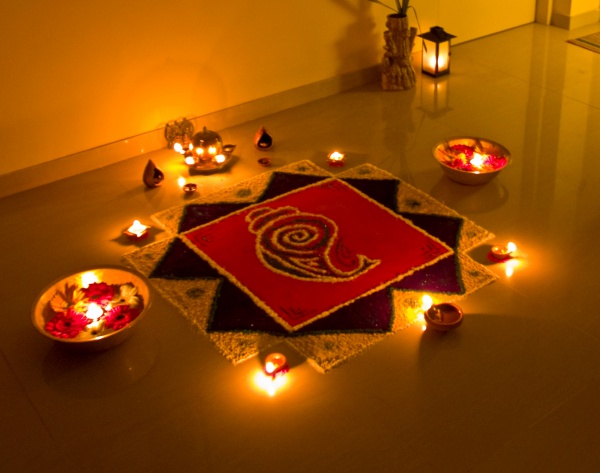Facts About Diwali
Diwali, also known as Divali or Deepavali, is a major Hindu festival that celebrates the triumph of light over darkness, good over evil, and knowledge over ignorance. This vibrant celebration spans five days during the Hindu lunisolar month of Kartika and honors various deities, including Lakshmi, Sita, Rama, Vishnu, and Krishna.
Preparations for Diwali are extensive and joyful. Families clean and decorate their homes with oil lamps (diyas) and colorful rangoli designs. They wear new clothes, light lamps, offer prayers to Goddess Lakshmi, set off fireworks, and share sweets and gifts with loved ones.
The origins of Diwali can be traced back to the Indian subcontinent and are mentioned in ancient Sanskrit texts. It is celebrated twenty days after Dussehra, with each day bearing its own special rituals and significance. Interestingly, other faiths such as Jains, Sikhs, and Newar Buddhists also observe festivals around the same time, each with unique customs and stories, making Diwali a significant cultural event for many communities.
For Hindus, Jains, Sikhs, and Newar Buddhists, Diwali holds deep religious meaning, symbolizing the victory of light over darkness and good over evil, albeit through different historical events and narratives. The celebration encompasses a variety of rituals, prayers, feasting, and the exchange of gifts. The five days are marked by specific rituals: Dhanteras, Naraka Chaturdashi, Lakshmi Pujan, Annakut, and Bhai Duj, each with its own traditions.
Beyond its religious and cultural importance, Diwali is also a significant economic and political event. It prompts a surge in consumer spending, shopping, and cultural exchanges worldwide. It is a time when politicians and leaders often engage with the Hindu and Indian communities. However, the festival does face challenges, such as air pollution from fireworks and an increase in burn injuries during the celebrations.

 China
China